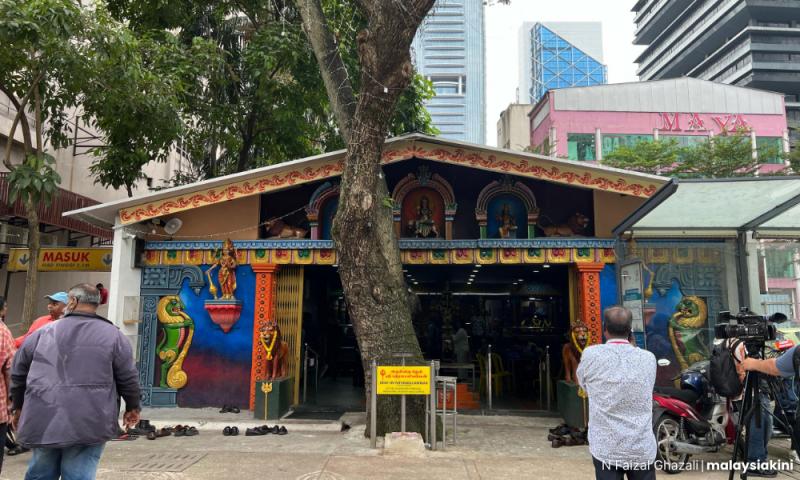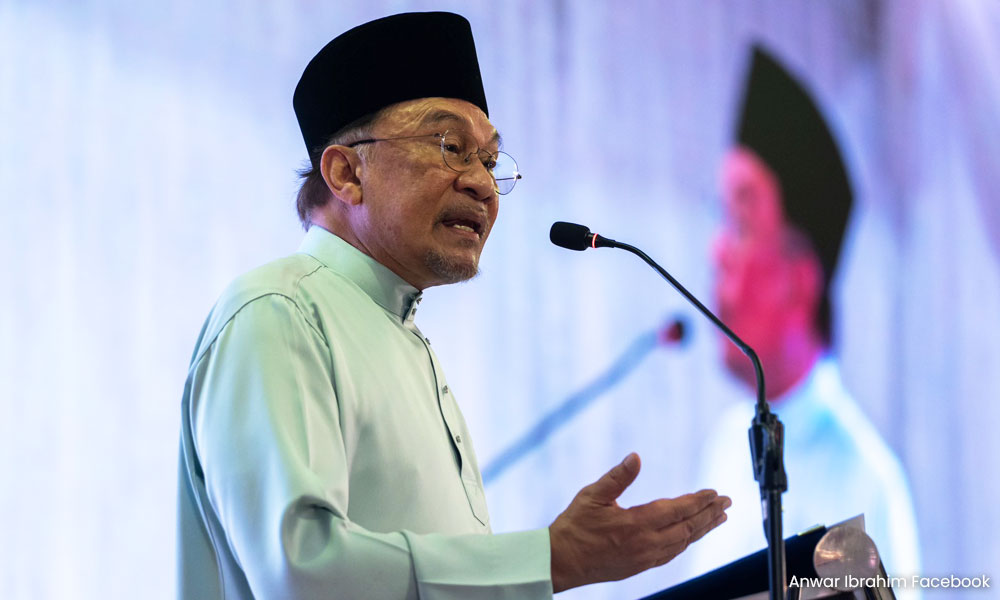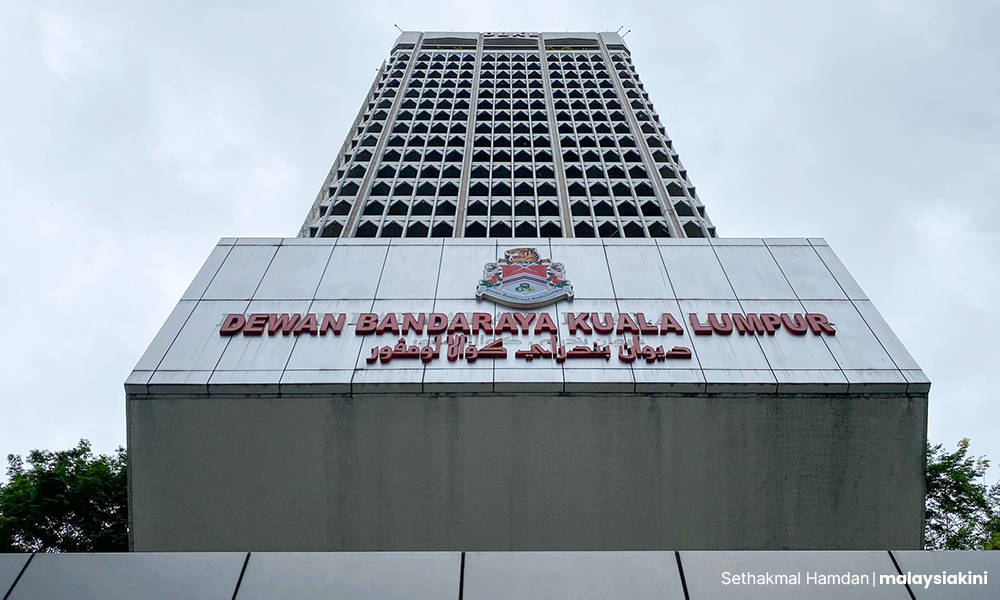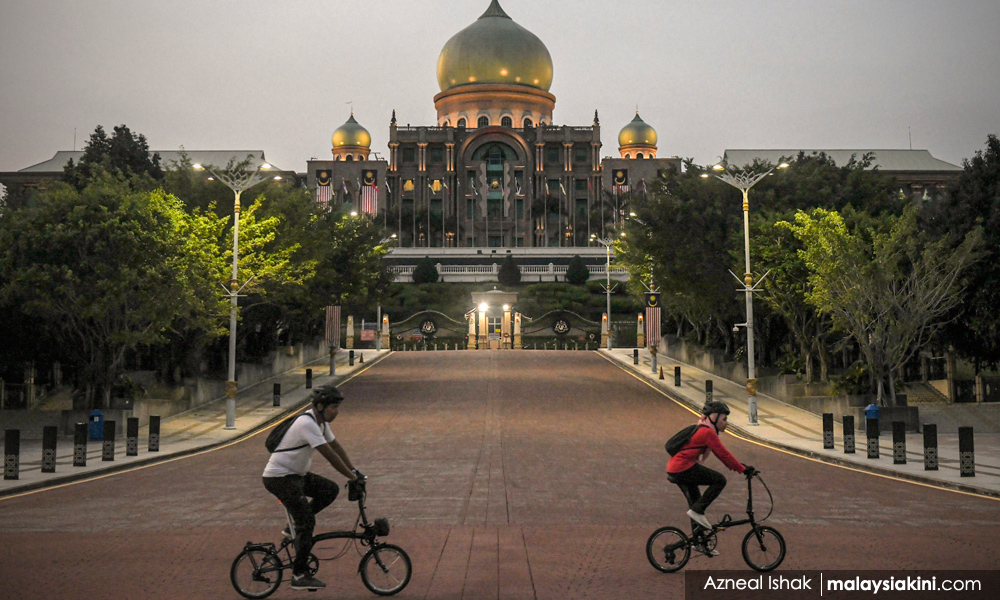

Lim Teck Ghee
Published: Mar 29, 2025 8:00 AM
Updated: 11:00 AM
COMMENT | According to Prime Minister Anwar Ibrahim, the Dewi Sri Pathrakaliamman temple controversy dominating social and print media during the last several weeks has been settled.
So, what are the key takeaways and lessons learned?
Firstly, this was no ordinary or usual religious or racial controversy. The displacement of the century-old temple to make way for the expansion of a planned Madani Mosque was unprecedented.
Not surprisingly, it set off a response from thousands of social media commentators and became the main talk in possibly millions of households and group chats all around the country. It is a subject that will continue to be discussed for a long time.
The controversy had the potential to ignite a fiery and not easily controllable firestorm. That it did not do so and its settlement should be welcomed by Malaysians even if it failed to meet the concerns of many netizens questioning the legal principles and process, and the ethical norms brought into play in its resolution.
Secondly, it was a “David vs Goliath” tussle pitting a small temple committee against a trading and property giant that had the support of the bureaucracy and ruling - as well as opposition - political leadership.
The likelihood was that Dewi Sri Pathrakaliamman temple would be the loser and Jakel Trading Sdn Bhd, the purchaser of the temple site - taking advantage of the uneven distribution of power and authority among the nation’s religious communities - was going to win.
Published: Mar 29, 2025 8:00 AM
Updated: 11:00 AM
COMMENT | According to Prime Minister Anwar Ibrahim, the Dewi Sri Pathrakaliamman temple controversy dominating social and print media during the last several weeks has been settled.
So, what are the key takeaways and lessons learned?
Firstly, this was no ordinary or usual religious or racial controversy. The displacement of the century-old temple to make way for the expansion of a planned Madani Mosque was unprecedented.
Not surprisingly, it set off a response from thousands of social media commentators and became the main talk in possibly millions of households and group chats all around the country. It is a subject that will continue to be discussed for a long time.
The controversy had the potential to ignite a fiery and not easily controllable firestorm. That it did not do so and its settlement should be welcomed by Malaysians even if it failed to meet the concerns of many netizens questioning the legal principles and process, and the ethical norms brought into play in its resolution.
Secondly, it was a “David vs Goliath” tussle pitting a small temple committee against a trading and property giant that had the support of the bureaucracy and ruling - as well as opposition - political leadership.
The likelihood was that Dewi Sri Pathrakaliamman temple would be the loser and Jakel Trading Sdn Bhd, the purchaser of the temple site - taking advantage of the uneven distribution of power and authority among the nation’s religious communities - was going to win.

Prime Minister Anwar Ibrahim
However, that did not take place. Its settlement has been described as a win-win by various quarters, including the prime minister, who noted that the relocation of the temple had been conducted in an organised and respectful manner, with all parties involved reaching a compromise.
Sceptics and cynics have contested the claim that a fair and just solution has been attained, with more than a few pointing to a cave-in, cop-out or sell-out by the temple authorities, though there is no evidence whatsoever to support these suspicions.
READ MORE: KINIGUIDE | Exploring temple crisis in the heart of KL
However, that did not take place. Its settlement has been described as a win-win by various quarters, including the prime minister, who noted that the relocation of the temple had been conducted in an organised and respectful manner, with all parties involved reaching a compromise.
Sceptics and cynics have contested the claim that a fair and just solution has been attained, with more than a few pointing to a cave-in, cop-out or sell-out by the temple authorities, though there is no evidence whatsoever to support these suspicions.
READ MORE: KINIGUIDE | Exploring temple crisis in the heart of KL
As someone very close to the action on the temple ground noted to me, the temple committee “are an honest, decent committee who got the best result in extremely difficult circumstances”.
The new site located 50m away appears to some neutral observers a good replacement, especially since it will come with a secure title.
Lessons learned
As to the lessons learned, the first that comes to mind is the need for a proactive response to any racial or religious dispute or controversy to bring about a quick resolution.
This rapid response is especially needed from our political and bureaucratic leaders, who are the main stakeholders and decision-makers in such disputes.
How and why this failed to take place - controversies over the legality of Hindu temple sites go all the way back to early independence days - needs identification and immediate rectification.
Was it on account of foot-dragging by the temple committee? Were outside interest groups and forces involved to complicate its resolution?
Was it on account of bureaucratic inertia and failure to be neutral, transparent and accountable resulting in unjustified delay and blockages to the resolution of such controversies?
The new site located 50m away appears to some neutral observers a good replacement, especially since it will come with a secure title.
Lessons learned
As to the lessons learned, the first that comes to mind is the need for a proactive response to any racial or religious dispute or controversy to bring about a quick resolution.
This rapid response is especially needed from our political and bureaucratic leaders, who are the main stakeholders and decision-makers in such disputes.
How and why this failed to take place - controversies over the legality of Hindu temple sites go all the way back to early independence days - needs identification and immediate rectification.
Was it on account of foot-dragging by the temple committee? Were outside interest groups and forces involved to complicate its resolution?
Was it on account of bureaucratic inertia and failure to be neutral, transparent and accountable resulting in unjustified delay and blockages to the resolution of such controversies?

What stands in the way of reforming local government and the decision-making process in urban development seen as responsible for the prolongation of the temple’s plight as well as that of other aggrieved parties caught in similar land-related disputes?
Is it because the local government authorities have regressed and mutated to become a source of corrupt and crony-ridden practices especially related to land, housing and other development?
Not only should we learn lessons about minimising or preventing economic, religious and political exploitation of such issues but is there a way of ensuring that political parties do not and cannot instrumentalise religious sentiments for electoral gains as is taking place with increasing frequency?
Strong leadership
Similar controversies elsewhere have emphasised the importance of strong political leadership and will in taking proactive and timely action to overcome grievances and ensure that conflict and the undermining of social cohesion are avoided.
Our politicians should employ a multifaceted approach, drawing on legal rigour, historical accountability, political restraint, and social empathy to navigate such controversies.
By prioritising evidence, neutrality and community dialogue, they can help begin the process of de-politicising religion and begin to define and actualise the promise of justice and inclusion that is to be embedded in a Madani society.
We can expect politicians, especially from the ruling parties, to remain hesitant - and often mute - in taking on and resolving issues deemed to be religiously sensitive and potentially damaging to their political positions.

They should be pressed to pass the responsibility of arbitration and settlement as quickly as possible to the soon-to-be-established office of Ombudsman Malaysia.
This proposal, which was first supported by the 150 members of the first National Economic Consultative Council in 1992, can provide the foundation stone for a fair and transparent handling of complaints and grievances related to race and religion. It may finally see fruition but will it take on the difficult agenda of racial and religious controversies?
There are good Malaysians who would be more than ready to serve the country in the cause of advancing racial and religious peace and harmony.
Can the government act quickly on the establishment of an independent, transparent and accountable Ombudsman Malaysia, or will we see it engage in further foot-dragging and business as usual, which has been to establish watered-down and toothless agencies of reform?
LIM TECK GHEE is an economic historian, analyst, and former senior official with the United Nations and World Bank.
Temple worshippers should be happy they got 4k sqft. Don't have to stand outside and Wail against the Wall but cannot enter.
ReplyDelete